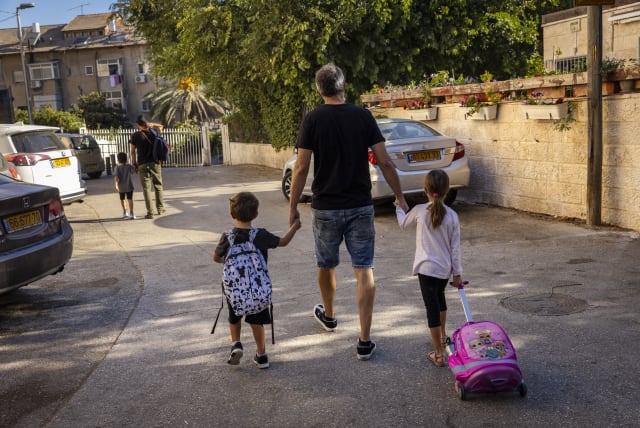Childcare pick-up: A one-hour window to build healthier eating habits

If busy parents want to try a small change that might make a big difference, consider stocking the car with veggie sticks, cheese, fruit slices, and drinks like water or milk.
Supermarkets place sweets, salty snacks, and other junk food near cash registers while customers are waiting to pay – encouraging kids to pester their parents to buy them. Unfortunately, the Israeli government – including the Health and Commerce Ministries – has done nothing to make such placement illegal.
There is another time and place when children are allowed to stuff themselves with junk food. Millions of working parents know the routine: bustle the kids off to childcare or early grades of elementary school in the morning, work hard, fight the daily traffic jams to get the kids back home. Something to drink and maybe a snack to munch can help ease the commute, they think to themselves.
Understandably, few parents take the time to think about the nutrients or calories involved, but experts at Cincinnati Children’s Hospital in Ohio decided to take a closer look. Their eyebrow-raising findings have just been published in the journal Children’s Health Care under the title, “Dietary intake and quality during transition periods of drop-off and pickup from child-care centers.”
The researchers reviewed older data contained in daily food journals kept by more than 300 families of children who attended 30 childcare centers that participated in the Preschool Eating and Activity Study (2009-2011). They found that the hour after parents and caregivers picked up their children stood out as a high-calorie, relatively less healthy part of the child’s overall diet.
Children consume over 1,471 calories each day
Overall, these children, ages three to five, consumed more than 1,471 calories across the entire day – an amount on the high end of recommended daily limits. Of that amount, an average of 290 calories were consumed in the hour after leaving day care – about 20% of the day’s entire calorie intake. After-care food and drink accounted for about 22% of the day’s added sugar and a third of the sweet and salty snack foods the children consumed.

“Every parent knows how busy that time of day can feel. Parents can feel stressed, the kids may be cranky, hungry, or tired. There’s nothing wrong with treats once in a while,” says senior author Dr. Kristen Copeland, head of the hospital’s general and community pediatrics division. “But that car ride home also can be an opportunity to instill healthier habits instead of less healthy ones.”
If busy parents want to try a small change that might make a big difference, consider stocking the car with veggie sticks, cheese, fruit slices, and drinks like water or milk. A few minutes of preparation can make skipping the high-calorie drive-throughs and sugar-loaded packaged snacks easier.
“Children of preschool age are in a highly habit-forming time of their lives. They thrive on routine,” Copeland said. “Children often look forward to the car ride home, which makes that time an opportunity to start a healthy snacking habit that could last a lifetime.”
